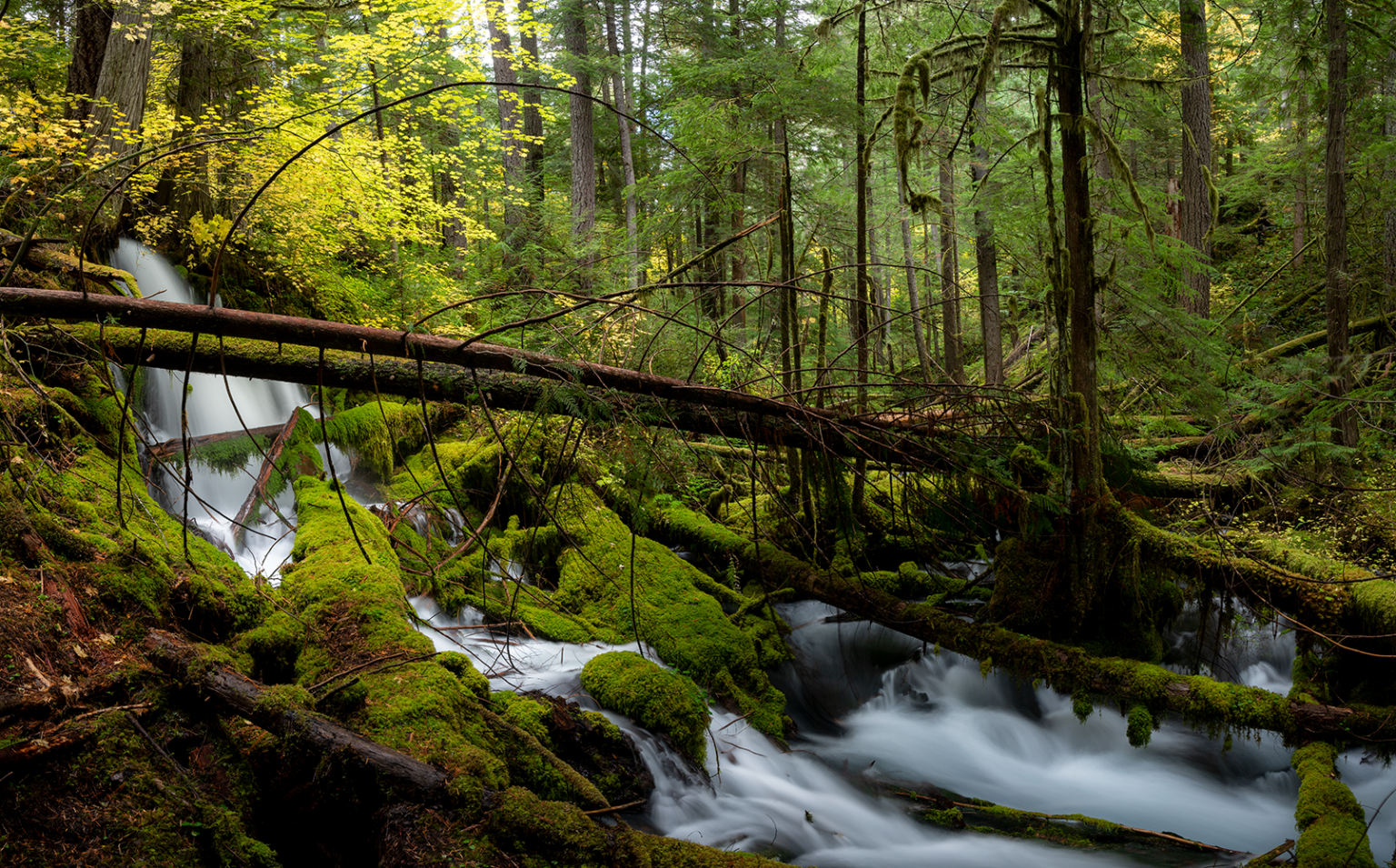Flat Country — Willamette National Forest, McKenzie Ranger District
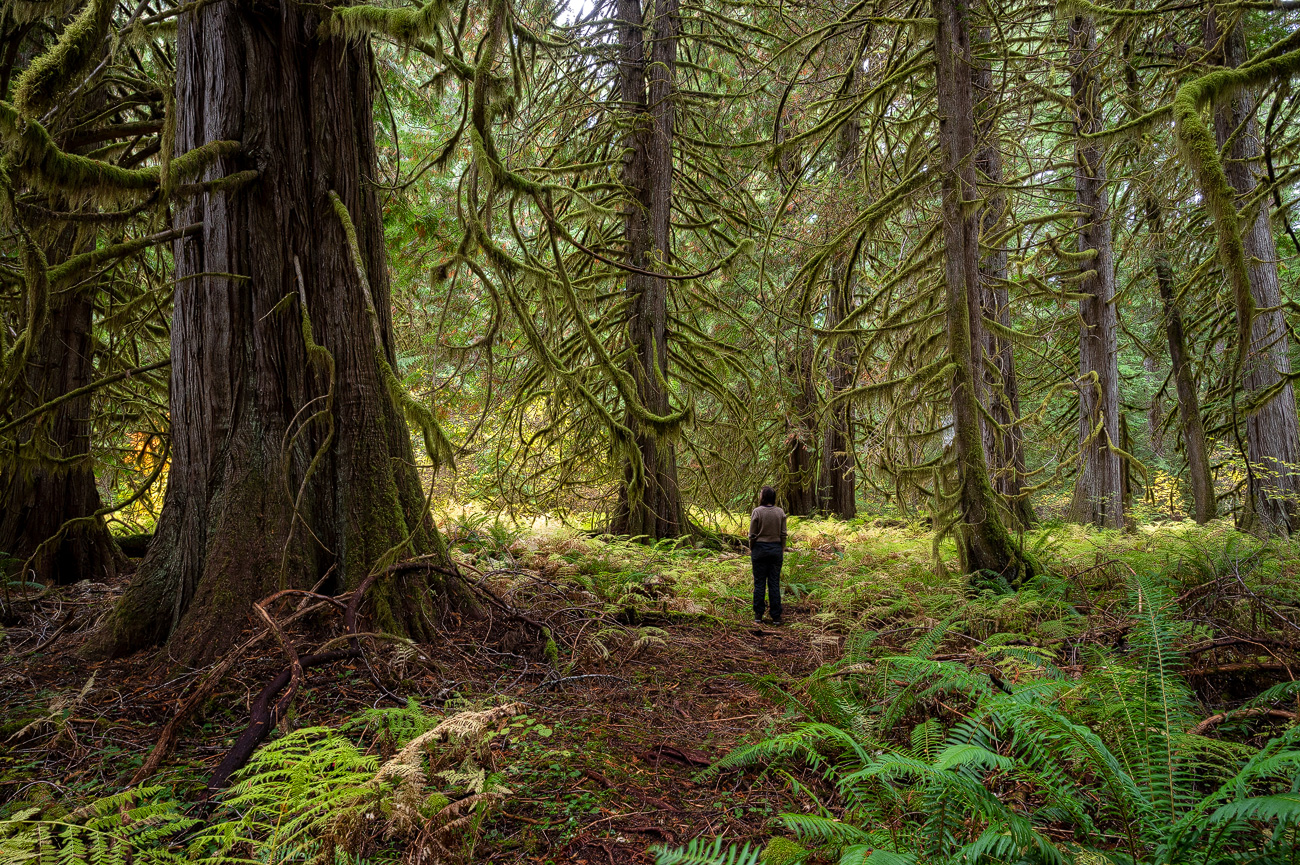
UPDATE:
Early in 2022, in honor of Earth Day, President Biden signed an executive order (EO) on Strengthening the Nation’s Forests, Communities, and Local Economies. The EO represents progress in its acknowledgement that old-growth and, notably, mature forests are essential against the worst impacts of climate change. It marks an incredible leap in the right direction, but it does not actually protect these forests from the greatest threat that they face: logging. The question remains how exactly federal agencies are to incorporate the EO’s directives into standing, threatened old-growth and mature forest timber sales like Flat Country.
In response to the EO, Cascadia Wildlands and our allies submitted a “significant new information” letter detailing new law and policy as well as changed on-the-ground conditions stemming from the 2020 Holiday Farm wildfire nearby. The Forest Service’s 2020 environmental impact statement and January 2021 final Record of Decision (ROD) for the sale approving the 5,000-acre timber sale does not consider these important issues as required by the National Environmental Policy Act. With the letter, the groups are asking the agency to perform a supplemental environmental review of the new information that arose since 2020. As of Fall, 2022, we had yet to hear a response from the Forest Service.
Then, the U.S. Forest Service ended 2022 with a decision worth celebrating. The federal agency decided to withdraw its plans for the Flat Country timber sale, which would have affected some more than 100-year-old trees in a nearly 75,000 acre project area in the Willamette National Forest near McKenzie Bridge. The Eugene Weekly reported on this withdrawal.
We are still watching this forest for any changes or additional sales that may arise.
ABOUT THE SALE:
The Flat Country timber sale was recently featured in a scathing report released by the Climate Forest campaign as the second worst timber sale happening on public lands today in a report titled Worth More Standing.
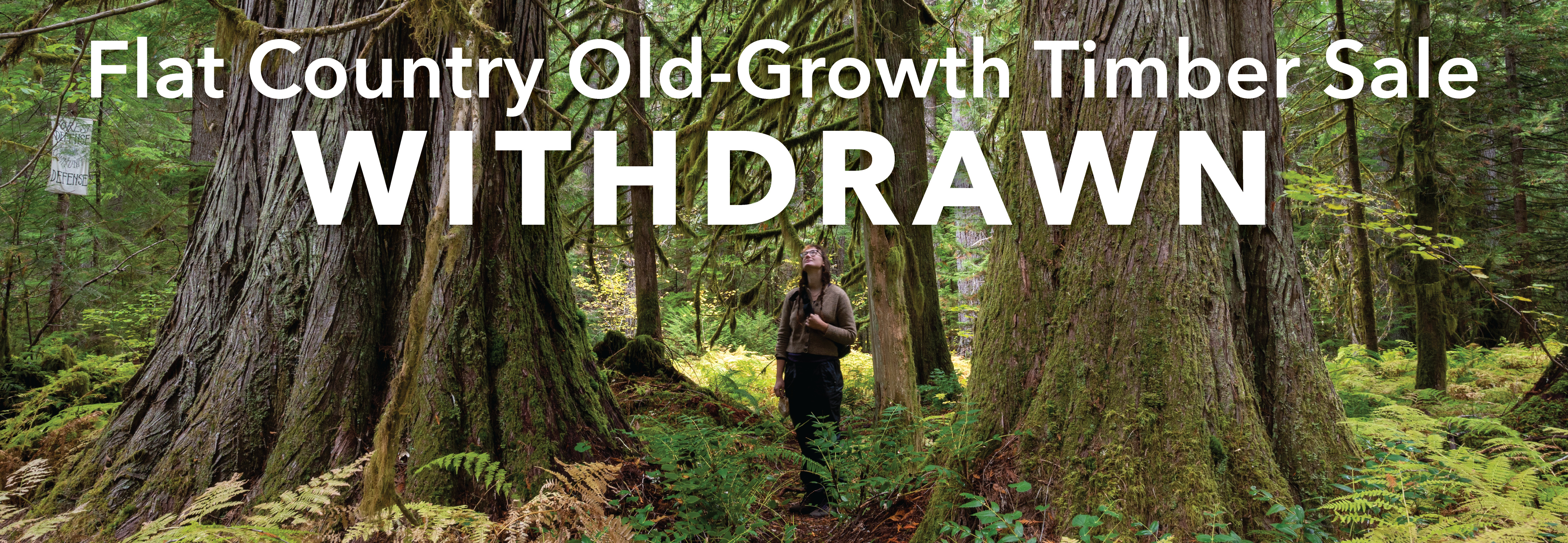
The Flat Country timber sale is located on the traditional lands of the Molalla, Kalapuya and other indigenous peoples who’ve lived, traded and traveled on these lands since time immemorial.
Map of the Flat Country project area (click image to enlarge), adjacent to the Mt. Washington Wilderness. The southern portion of the sale, which begins at the junction of Hwy 126 and Hwy 242 is approx. 6 miles from the town of McKenzie Bridge, Oregon and on the opposite side of the McKenzie River. This map is available as a georeferenced PDF here.
Why This Forest Is Special
The Flat Country timber sale is within the Willamette National Forest in an area that extends from Scott Mountain to the upper reaches of the McKenzie River. Moss-covered Douglas firs and western hemlocks grow to more than 200 feet tall and 5 to 6 feet wide. Delicate vine maple and Pacific rhododendron combine in the understory to make these forests as magical as they are important. Almost 20 years ago, the Forest Service largely stopped logging older forests in western Oregon and western Washington following massive public outcry over decades of clearcutting these incomparable cathedral forests. However, 1 million acres of mature and old-growth forests in the Pacific Northwest are not protected from federal logging. The Flat Country project is set to destroy a large swath of these irreplaceable forests.
Flat Country Timber Sale
This timber sale will aggressively log 2,000 acres of older forests in the McKenzie River headwaters, which provide fresh drinking water to hundreds of thousands of residents in the Willamette Valley. Several types of logging will be used, including clearcutting about 1,000 acres of mature and old-growth Douglas fir and western hemlock stands up to 170 years old.
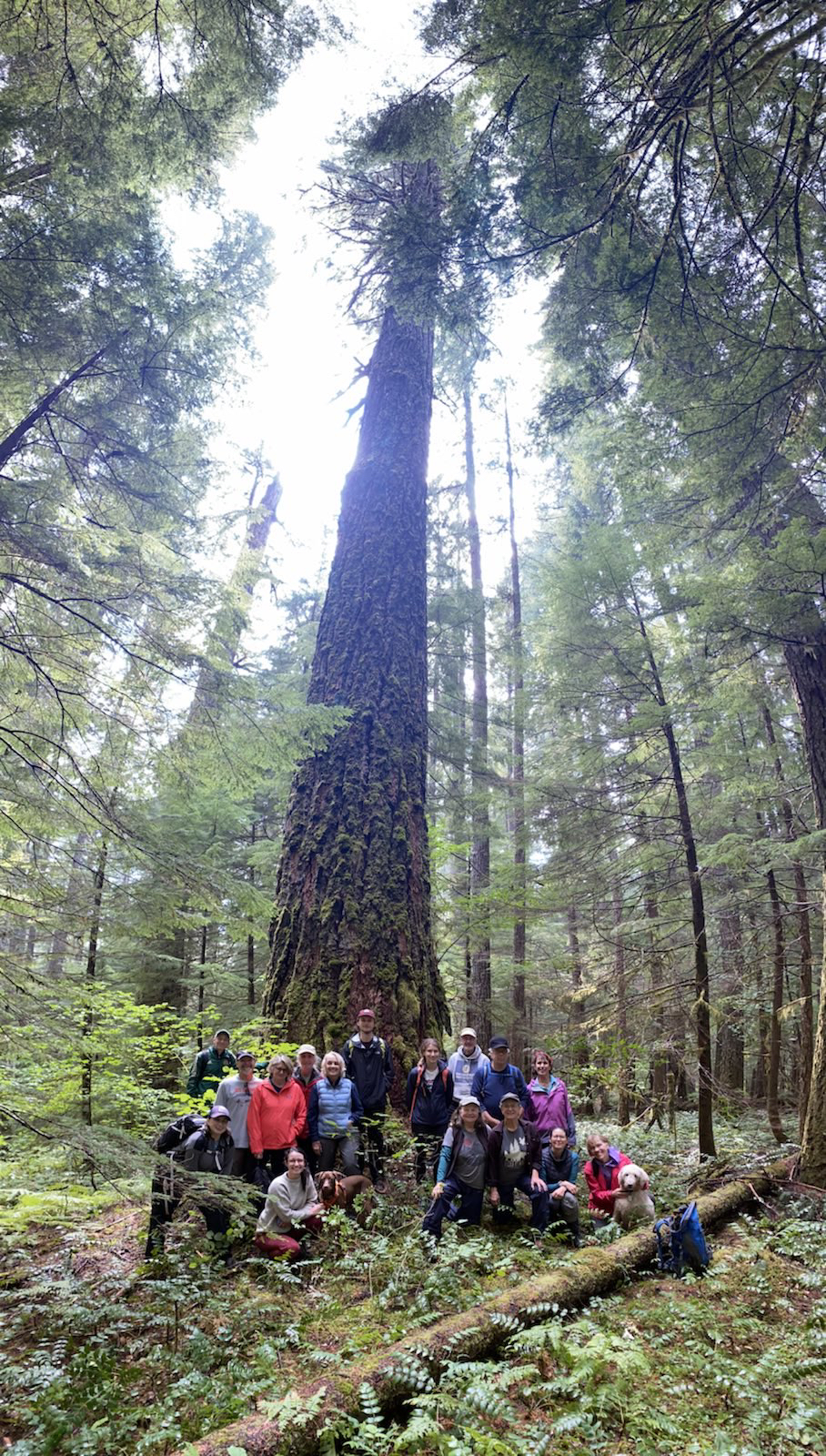
Carbon and Biodiversity
The western Cascades produces some of the world’s oldest, largest carbon-storing champions. Among tree species, Douglas fir is a marathon runner rather than a sprinter and at 80 years it’s just begun to hit its stride. The trees will keep growing for centuries, accumulating massive amounts of captured atmospheric carbon in biomass. Snags and downed logs add significantly to carbon storage because of their slow rate of decay, helping combat climate change and providing critical wildlife habitat. Olallie and Anderson Creeks provide critical habitat for endangered bull trout and other aquatic species. The Forest Service admits this project will destroy and degrade habitat essential for threatened northern spotted owls, red tree voles, pileated woodpeckers, martens and goshawks.
Why These Trees Should Remain Standing
The Forest Service claims the Flat Country project is needed to “provide a sustainable supply of timber products” and to “improve stand conditions.” Yet private timber lands in Oregon are prolific producers of lumber, making Oregon the top softwood lumber producer in the country. The Forest Service’s claim that mature forests are “overstocked” are based on tree density measures developed for managing industrial wood production plantations, which is an inappropriate measure for natural forests. The planning documents said some “legacy” trees will be protected, but clearcutting everything except the largest trees is still a harmful clearcut.
The Future of Mature and Old-Growth Trees in Willamette National Forest
The groundbreaking 1994 Pacific Northwest Forest Plan protected mature and old-growth forests and trees 80 years and older from logging. However, the plan left 1 million acres of late successional forests open to logging. The Flat Country project is an attack on some of the last remaining mature and old-growth forests in the western Cascades. These trees are at grave risk unless there’s a federal policy to permanently protect them.
Cascadia Wildlands encourages the Forest Service to focus thinning on younger plantation stands under 80 years old, where thinning can help wildlife and also provide trees to local mills. Importantly, we encourage the Forest Service to drop all regeneration harvest on older stands, as this is incredibly destructive to forest and watershed health.
Check out what we saw during a trip out to Flat Country; written by our Field Checking Intern, Courtney Kaltenbach.
COMMUNITY OPPOSITION:
The contentious timber sale has been opposed by Congressman Peter DeFazio and prominent forest ecologists Jerry Franklin and Norm Johnson, often hailed as the primary architects of the Northwest Forest Plan (take a look at their gorgeous website). Cascadia Wildlands WildCAT volunteers have field checked virtually every unit in the massive timber sale area and have worked to highlight the importance of protecting this forest ecosystem. In addition to field checks, WildCATs have led public hikes, hosted information sessions, and tabled at events throughout western Oregon to bring attention to the egregious sale
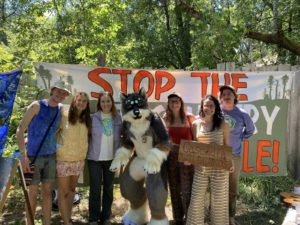
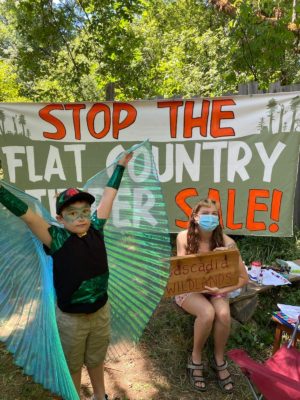
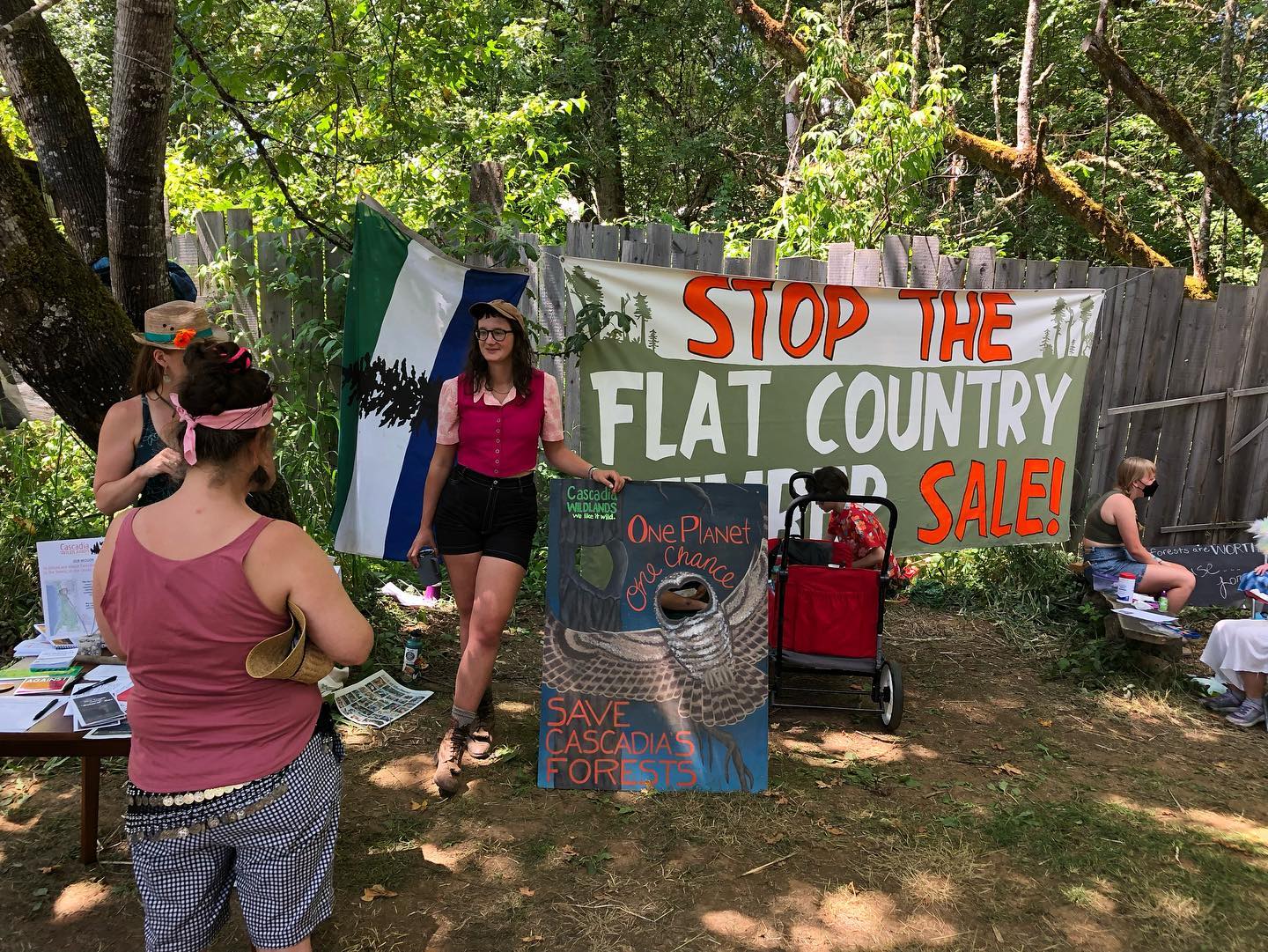
In October, 2022 a “kayaktivist” flotilla of over 100 concerned community members rallied on the McKenzie River to protest Flat Country and call on the Biden Administration to drop the sale once and for all.
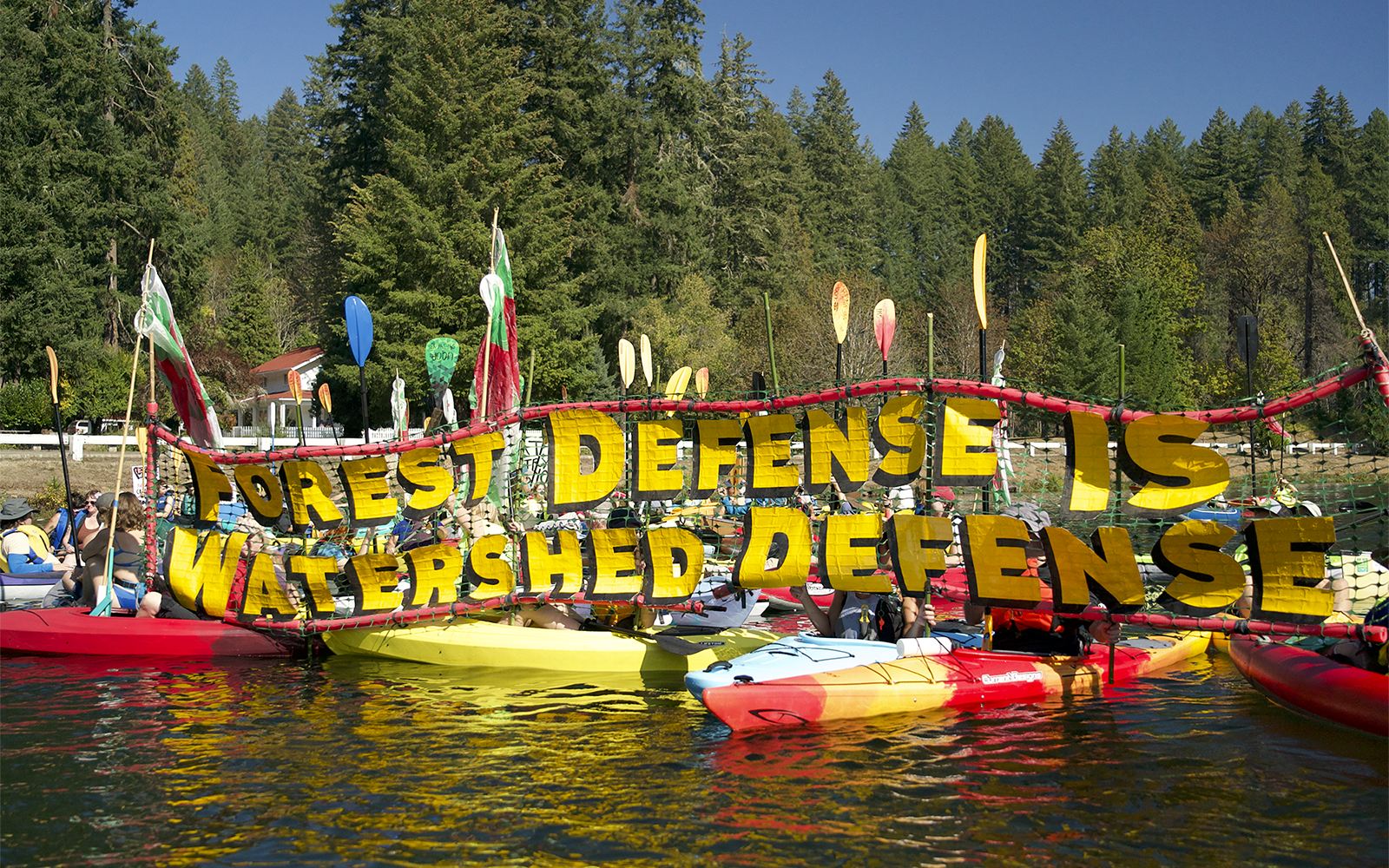
HOW TO HELP:
At the moment, you can keep writing your letters to the editor and congress members opposing this project. You can reach out to agency leadership too — to let them know they are displeased with mature and old-growth logging in our public forests.
AGENCY LEADERSHIP —
- NEPA Planner at McKenzie River Ranger District, Willamette National Forest, U.S. Forest Service, Dean Schlichting: deandschlichting@fs.fed.us
- District Ranger, McKenzie River Ranger District, Willamette National Forest, Darren Cross: darren.cross@usda.gov
- USFS Regional Forester, Glenn Casamassa: glenn.casamassa@usda.gov
- Sec. of Agriculture, Tom Vilsack: Tom.Vilsack@osec.usda.gov
- Chief of U.S. Department of Agriculture’s Forest Service, Randy Moore: randy.moore@usda.gov


